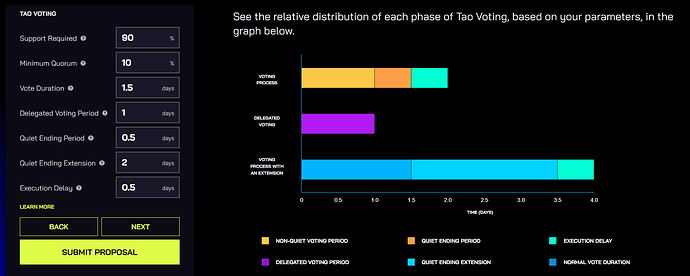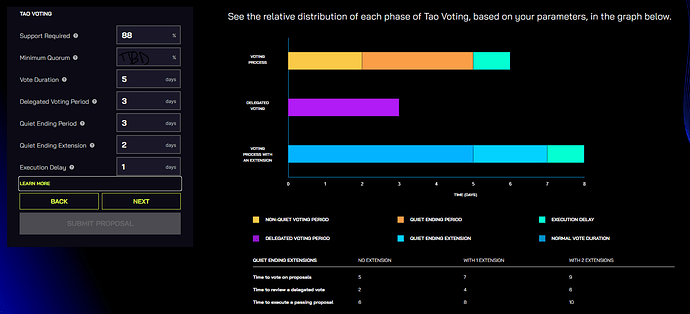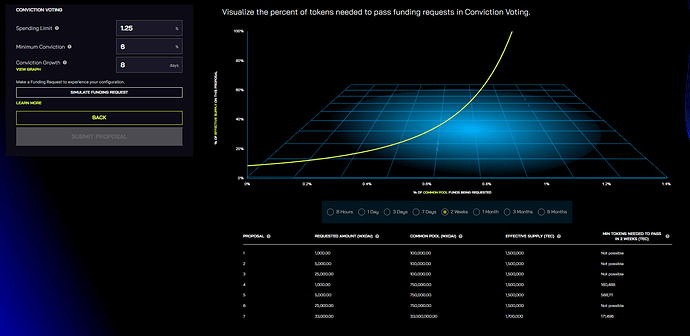You can play with the GIVeconomy version of the Dashboard here: https://commons-config-frontend-git-feat-giveth-givethio.vercel.app/
The best part is the Learn Modules:
Conviction Voting
Conviction Voting is the governance system in which GIVers create proposals to request funds from the Common Pool.
GIV can be staked on these proposals to signal approval of the request. Staked tokens accrue voting power, or Conviction, continuously over time. The amount of tokens currently voting on all proposals in Conviction Voting is represented by the term Effective Supply. The logarithmic function that decides the rate at which Conviction accumulates is Conviction Growth.
This is the real power behind the GIV token. GIVers have a direct impact on deciding the Future of Giving by reviewing projects and voting on which initiatives get funded and how much GIV they receive.
The Spending Limit sets the maximum percentage of the Common Pool funds that can be requested by a single proposal. The Minimum Conviction dictates how many GIV are needed to pass a proposal, no matter how small the amount requested.
Tao Voting
As the GIVeconomy evolves so should its configuration. Parameters within the GIVgarden will be able to be modified during deployment. In this module you will need to define the voting requirements for any proposal to alter the GIVgarden on-chain configuration.
Modifying the GIVgarden
Tao Voting is the voting application by which the GIVers can modify the economic and governance settings of the GIVgarden. It is a very powerful voting application that is capable of performing many high-impact Decisions, for example:
- Install and remove Aragon Applications
- Modify the parameters of all existing Applications
- Remove GIV from the Common Pool
Since there is only one set of voting parameters for all GIVgarden components, well-thought out thresholds for passing proposals in Tao Voting are critical to ensure the GIVgarden architecture remains uncompromised.
Tao Voting is an upgraded version of a normal DAO Voting app with familiar parameters such as Support Required, Minimum Quorum, Execution Delayand Vote Duration.
Tao Voting also comes with two new concepts: Delegation and Quiet Ending.
Delegation
GIV holders can delegate their Tao Voting powers to another member who will cast votes on their behalf, these members become delegates. Delegates can only vote during the Delegate Voting Period, which is a specified amount of time at the beginning of the voting process. If a delegate votes contrary to their delegator the delegator can veto the delegated vote and cast their vote themselves. Any voter, delegate or otherwise, can only vote ONCE.
Quiet Ending
In the latter portion of the Vote Duration there’s a designated Quiet Ending Period (QEP). If during this period the vote outcome is flipped the Quiet Ending Extension (QEE) will trigger. The QEE will add more time to the voting period, giving eligible members who have not yet voted more time to do so. If the vote outcome flips again during QEE then another QEE will trigger, adding more time to vote. Voting closes only when the QEP or QEE ends without the vote outcome flipping.





 So nicely designed!
So nicely designed!